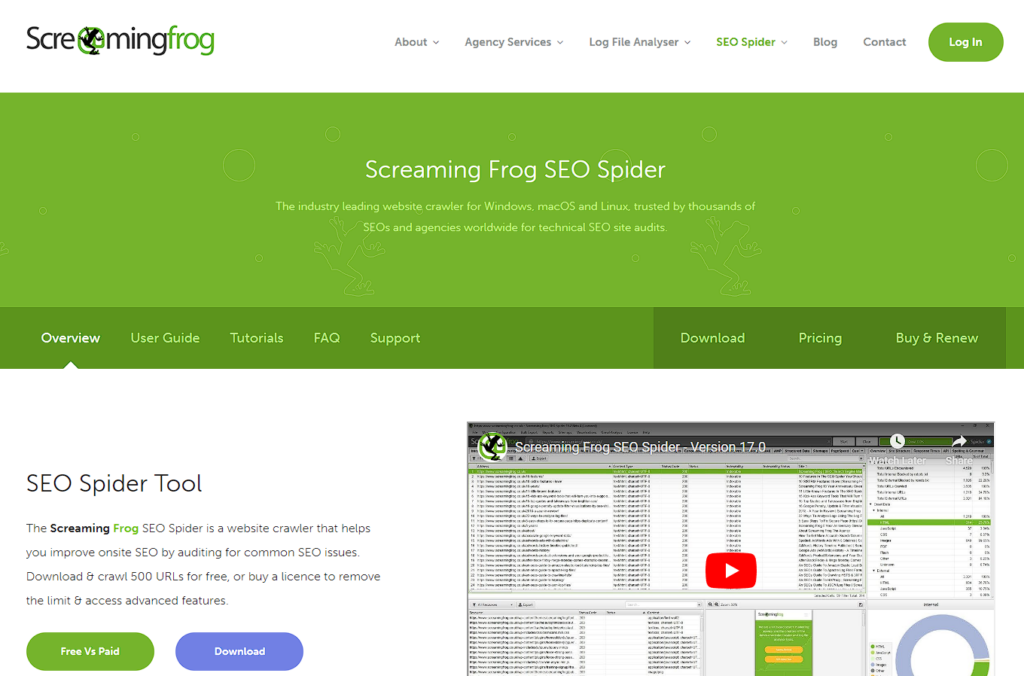
You’ve got your website, you’ve got your content, you’ve got your links, you’ve got your traffic.
You’ve won the game, right? Nope! You forgot about an SEO audit report.
Websites require constant attention and upkeep; they’re not just something you set and forget.
Technology changes faster than we can breathe sometimes, and it’s essential to stay current on the latest advances.
Are you curious for some data about how your website is performing against the competition?
An SEO audit report may be right for you! But what is it, and how do you get one? Read on to find out!
What is an SEO audit report?
An SEO audit report is precisely what it sounds like: a document detailing the results of an audit, including recommendations to improve your website.
While this can sound like a scary word (you certainly don’t want to run into this regarding your taxes, for instance), all it is is an analysis of your SEO optimization.
Your report can include technical, navigational, and marketing issues.
This is very useful for understanding where your site or business is succeeding and, on the other side of the coin, where it’s not doing so well.
It may be easier and less hassle to bury your head in the sand and keep throwing things at the board until you think something sticks.
Still, an SEO audit report can provide you with the cold, complex data you need to make decisions regarding your business.
Your SEO audit report should include a rundown of the bugs and issues detected, strategies and tips for promotion and how to fix them.
Why do I need one?
If you want your site to succeed, the information an SEO audit report can provide you with is vital.
If you want to continue to function in today’s market, where sites and businesses are becoming more innovative, more optimized, with more vital content.
An SEO audit report works on two levels: internal and external.
On an external level, you’ll be able to understand the SEO market better. In the digital business climate, this information is invaluable.

Technology is rapidly advancing right before our eyes.
What was innovative and relevant a couple of years, even a few months ago, may not be so top-notch anymore.
Remember, search engines are run by algorithms, and those algorithms are being constantly updated to provide stronger, more relevant results to people who use them.
It’s important to be updated on these changes to keep your site fresh and innovative.
Developing content is an ongoing process, and you want to ensure your site will be seen by the right eyes!
Similarly, search engines’ webmaster tools are constantly changing as well.
You want to make sure you’re up to date and compliant with the latest updates, and an SEO audit report can provide you with that information.
“So what?” you might say. “I can figure out keyword placement myself. What do I need a whole report for?”
An SEO audit report doesn’t just give you a rundown of what’s going on with your SEO optimization and keywords.
Remember, this is a whole rundown of what’s going on with your site, good and bad.
This means that you’ll be alerted to any errors in your webpage.
Broken links? Inaccurate info? Outdated content? You’ll be made aware of it and learn how to fix it.
Additionally, you’ll have the chance to review your page’s titles and metadata.
When your site pops up in a search engine, titles, and metadata descriptions are the first things they see.
You’ll want to make sure there aren’t any errors in either of those and that the information is relevant and intelligible.
You’ll also be able to find out who’s linking to you and what pages.
This allows you to determine what links are useful, what aren’t so helpful, and what’s downright detrimental to your site.
With that information, you can model your content after what’s already working while nixing the parts that aren’t having the intended effect.
SEO strategies are changing as we speak.
Blink, and you might be out of the loop. On an internal level, an SEO audit report lets you see where your site falls in real-time.
With an SEO audit report, you can determine your site’s strengths and weaknesses and use that information to develop a game plan to boost your efforts.
Don’t make any critical decisions regarding your content without having an SEO audit report!
How to perform an SEO audit report
I’ll be the first to admit that performing an SEO audit report is a process.
There’s a lot to check to provide those invaluable results, but performing one yourself is possible.
Website crawl
First, you’ll want to crawl the website. Various apps, including Screaming Frog, are intended to help you with this process.
This free app crawls through your website like a search engine does.
This will help you get to the meat of your website, determining URL issues, issues with accessibility, page titles and metadata, heading problems, duplicate pages, and so on.
Screaming Frog allows you to export the data into an Excel spreadsheet to keep it handy for your analysis.

Review metadata
If you’ve done a site crawl, then you have this information already handy. Is your metadata communicating what you want to?
Remember that your titles and metadata are often the first glimpses of your site that potential audience members will see.
If they’re bland or formatted incorrectly, you aren’t giving them much of an incentive to visit your site.
Ensure your metadata and titles are catchy, unique, and correctly structured.
URLs
Do you have any duplicate URLs? Are they all formatted the same way?
Just for the sake of preventing confusion, you’ll want to make sure your URLs are consistent.
If one link is formatted as a date while another has a shortened version of your content title, that will confuse you and your audience later.
Take this opportunity to clean up any URL issues you see.
Links
Make sure your links work! Nothing’s more frustrating than finding a potentially exciting blog topic, but the link redirects to the home page.
You’ll want to make sure that your site isn’t coming up with any 404 errors as well.
Make sure your pages are in order and are linked correctly.
Additionally, ensure your anchor text links make sense in the articles in which they’re placed.
You don’t want non-relevant links and text shoehorned into a blog post to generate traffic.
It’s obvious, and quite frankly, it’s tacky. Figure out a plan of attack to tweak your links and text to make everything flow.
Page speed
Regarding generating traffic, page speed and mobile optimization are bigger players than you may realize.
How many times have you attempted to visit a web page only to watch the icon in the tab spin and spin?
You watch the page, and there’s nothing but white for minutes.
This is the frustration of dealing with a slow website.
If the homepage takes so long to load, what does that say for the rest of your content?
And who’s going to stick around and navigate through that?
Make sure your speeds are quick; if they aren’t, optimize what you need to.
This includes making concessions for mobile viewers.
Remember, mobile devices don’t look at webpages the same way as personal computers, so you’ll want to make sure your site works on a mobile device and everything’s in order.
Content
When running an SEO audit report, don’t leave your content out!
Remember that your content is the bread and butter of your website. Without it, you wouldn’t have any traffic in the first place.
Make sure that your content is natural, unique, and offers something valuable to your audience.
Make sure its keywords are optimized properly and that what you’re providing is fresh and relevant.
This is also an excellent opportunity to check in to ensure you keep your content updated.
Without constant updates, your content can quickly become outdated and irrelevant.
If you’ve been slacking on the content front, an SEO audit report presents the perfect opportunity to pick it back up.
Of course, a lot more goes into an SEO audit report, but these are the basic things you’ll want to cover.
If you’re interested in how your site is doing in any capacity or anxious to be at the top of your game, consider performing an SEO audit report.
How often should you have one?
With the rapidly changing climate of SEO and technology, it’s easy for innovative things to become obsolete quickly.
Because of this, I’d recommend an audit at least once a year, but you wouldn’t be overdoing it to perform one quarterly.
It might be time to do some website spring cleaning, and an SEO audit report will allow you to do just that!

 What Does Content Mean and How Can It Help Your Website?
What Does Content Mean and How Can It Help Your Website?
Leave a Reply